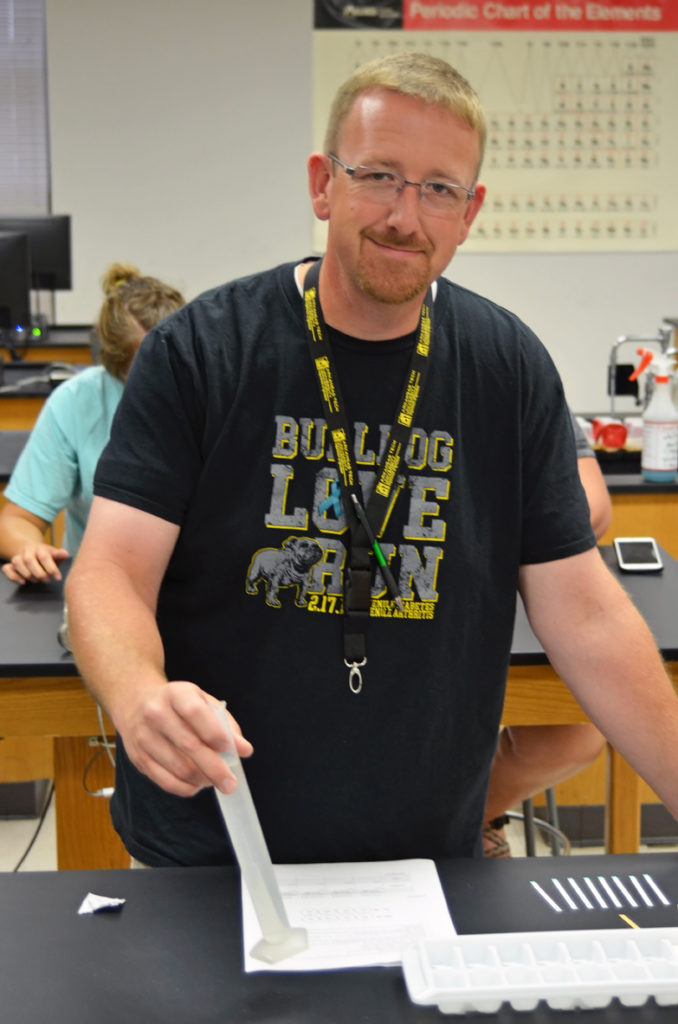Gordon Eichelberger is an ag education teacher at Quitman High School. He’s been involved in Arkansas Farm Bureau’s Ag In The Classroom agriculture education program for several years and has previously served as president of the Cleburne County Farm Bureau and presently is a member of the county Farm Bureau board of directors.
Q: How important is K-12 agriculture education in our schools?
A: I think agriculture education in the school system is important, because where else are you going to find something that relates to everybody in every part of their life, every day? The ability to use agriculture as a teaching tool is wonderful, because it does apply to everybody. What I really enjoy is making that connection for students who aren’t very informed about agriculture to show them where their food comes from, how it’s produced and have that resource for them to show how much it affects their daily life.
Q: How important is it to have an education program like Ag In The Classroom?
A: Ag In The Classroom is a wonderful program. As an agriculture education instructor, my focus is from grades seven through 12. We’re very fortunate that our school has an ag education program. Many schools don’t. Ag In The Classroom offers that bridge, either from elementary school to high school or for schools that don’t have an ag education program, Ag In The Classroom offers resource materials and lesson plans from kindergarten through twelfth grade that they can use learning those concepts. Why not use agriculture to learn as it’s so applicable to everyone’s life? It should be taught in more things that we teach.
Q: How should agriculture education be tied into the STEM (Science, Technology, Engineering, Mathematics) program?
A: A lot of what we do in agriculture relates directly to what we do in the STEM program. Farmers are not just farmers. They’re part mathematician. They’re part scientist. They’re part engineer. They have so many hats that they wear. The STEM program focuses on science, technology, engineering and math. It really directly relates to agriculture. There are so many correlations between the two. They fit together very well.
Q: What’s the advantage of having ag education available to all students regardless of what career they plan to go into?
A: I have a great example of a young man who plans on being a doctor, yet he still makes time to be involved in agriculture. He’s been an (FFA) officer for two years. He sees the importance of the leadership aspect. He sees the importance of how agriculture affects daily life. He sees the importance of what agriculture is going to need in the future, and he wants to be a part of that even though he plans on being a doctor. He still wants to be involved with agriculture classes and FFA. He is a great example of regardless of what you plan on doing, agriculture can benefit you, and it’s going to be a part of your life.
Q: If you could change one thing about agriculture education, what would it be?
A: I think it should be mandatory. I think it should be a course offered in every school. I understand that every school can’t start an ag education program. It takes money, resources and facilities. Our kids need to learn where our food comes from. As an agriculture education teacher, one of my main goals for my students when they complete the class, is that they have an understanding of where their food comes from. They have an understanding of the part they can play in the future to help make sure we do have an affordable, abundant and safe food supply. I think that an ag education class should be mandatory for students to graduate, so they have that understanding.



